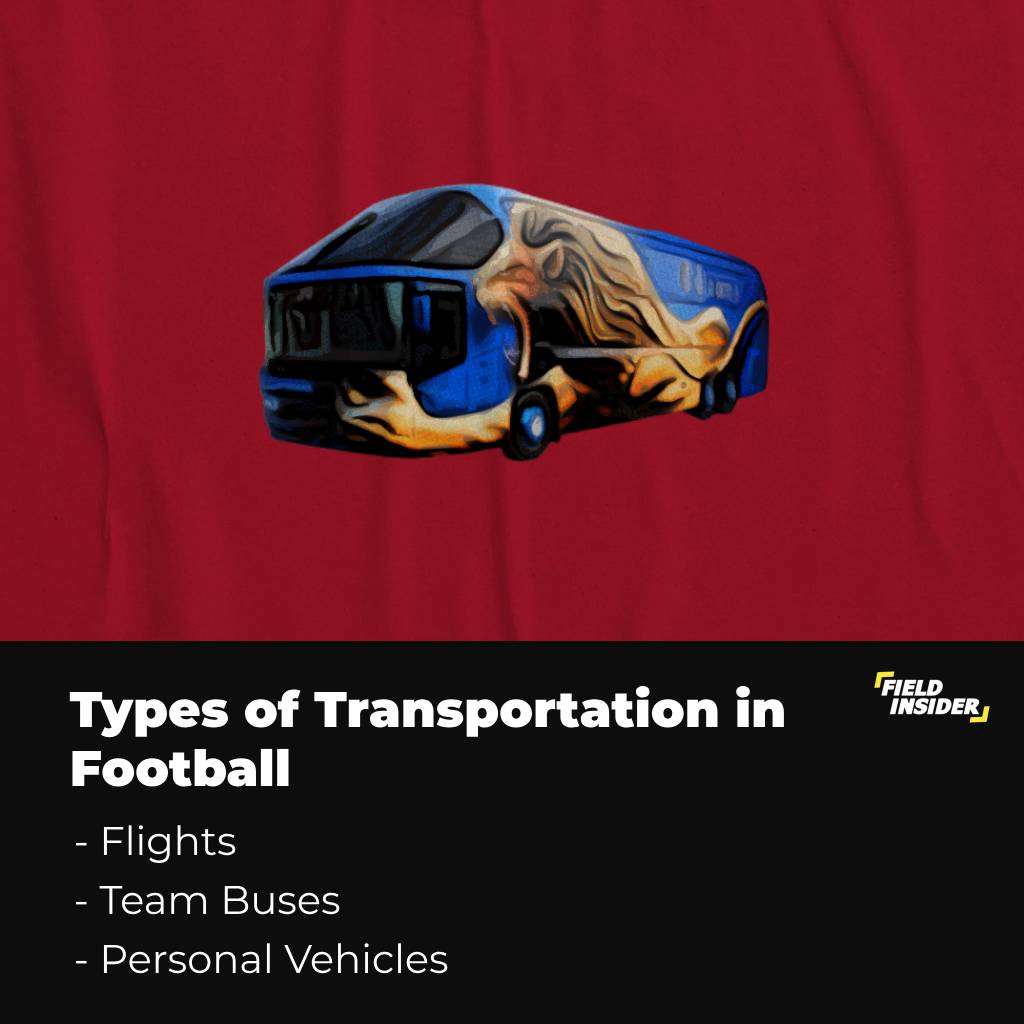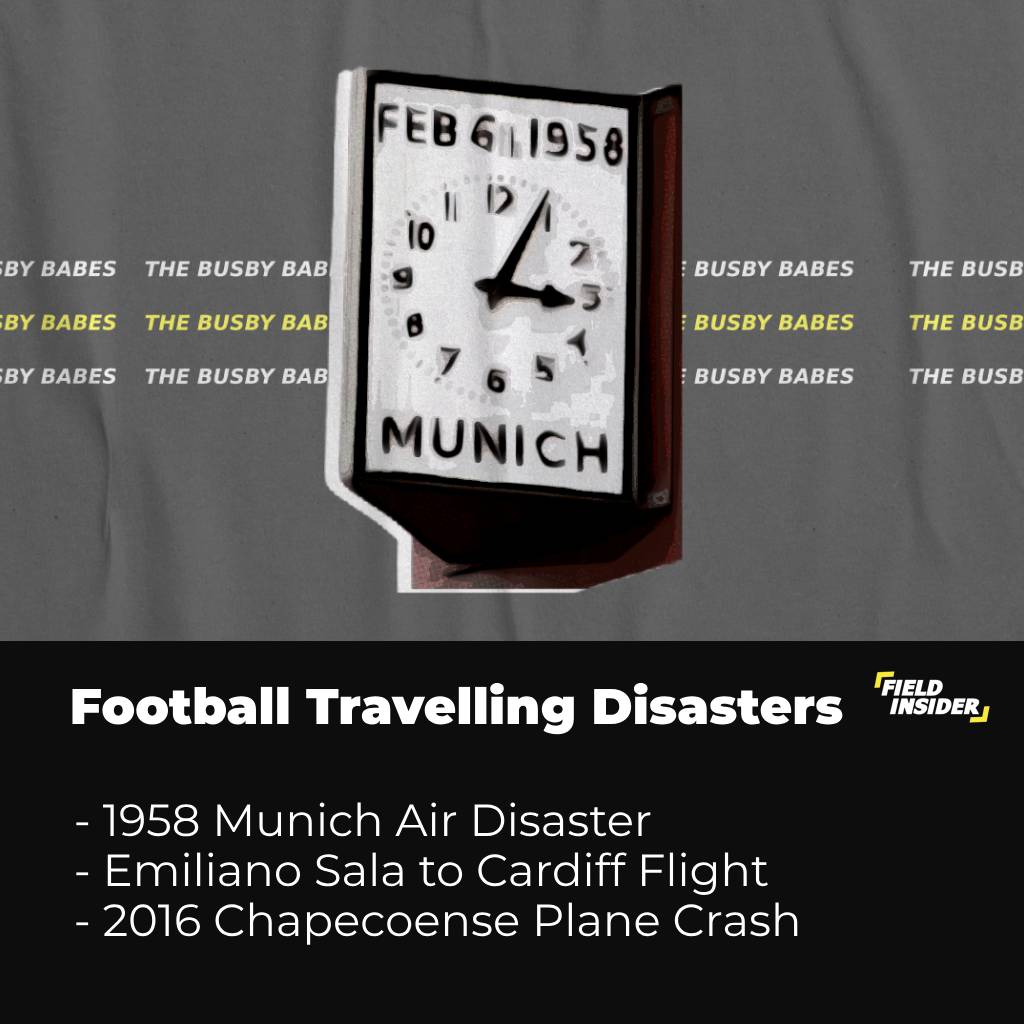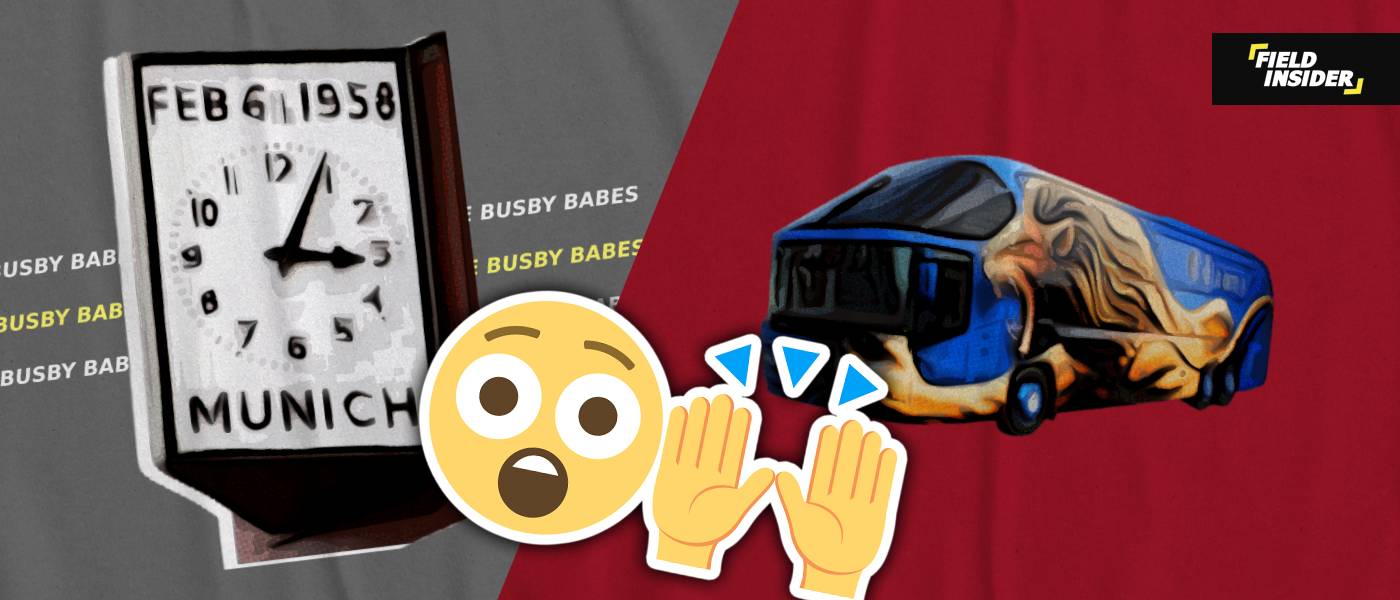How Do Footballers Travel? Full Guide
The life of a footballer is synonymous with constant motion, as the sport demands frequent travel for league matches, cup fixtures, and international duties. This relentless schedule means that footballers travel often, frequently jetting off to far-flung stadiums or boarding team coaches to nearby cities.
Footballers are no strangers to travel; it’s an integral part of their professional lives. This guide delves into the hows and whys of their journeys, offering a glimpse into a world that’s both glamorous and grueling.
| Aspect | Details |
|---|---|
| Modes of Transportation | Private jets for luxury, team buses for unity, personal vehicles for convenience. |
| Accommodations | From luxury hotels for rest to personalized team facilities. |
| Travel Essentials | Includes packing must-haves, dietary plans, and entertainment choices. |
| Security and Privacy | A delicate balance between fan interactions and maintaining a low profile. |
| Environmental Sustainability | Footballers’ and clubs’ steps towards eco-friendly travel practices. |
Modes of Transportation in Soccer
AIR TRAVEL
The Role of Private Jets
Private jets aren’t mere status symbols for elite footballers. They offer the ability to customize flight schedules, avoid the general public at airports, and ensure a level of comfort conducive to recovery and relaxation.
Imagine a player like Neymar needing to quickly travel for a crucial match or sponsorship commitment; private jets are the answer.
Travel Considerations for Long-Haul Flights:
Hydration, comfortable seating to prevent muscle stiffness, and even onboard exercises are considered for long-haul flights. Moreover, clubs often collaborate with sleep experts to tackle jet lag, ensuring players adapt quickly to new time zones.

Team Buses
Benefits of Traveling Together as a Team:
Football is about both the team spirit and individual brilliance. The feeling of closeness and mutuality built in the confined space of a team bus, where players bond, discuss strategies, or even involved in light-hearted banter, often translates to good chemistry on the field.
Challenges and Logistics of Team Bus Travel:
Managing a group of team buses, especially in unfamiliar cities, requires careful planning. From ensuring the best routes to having on-board facilities like WiFi and physiotherapy setups, a lot goes into these seemingly simple journeys.
Personal Vehicles
The Convenience of Private Cars:
For local journeys or daily commutes, personal cars provide footballers the freedom to operate on their own schedules, avoiding the constraints of organized team travel.
Security and Privacy Concerns:
The negative side is the increased attention. Players like Lionel Messi can’t simply drive around without attracting crowds. Measures like tinted windows, secure parking spaces, and even bait vehicles are used sometimes.
How do Footballers Travel to both Home & Away Games?
In the UK, for an away game, if the journey time is less than 3 hours, teams will frequently travel by coach. In fact, clubs try to limit footballers’ travel time to no more than three hours, as any more can have a negative impact on performance due to stiffness and muscle problems.
Depending on the start time and distance, the team may spend the night in a nearby hotel. With a kickoff time of 12:30, for example., traveling first thing in the morning would be too early and risky.
Football clubs recommend that their players live within a 30-60-minute commute of the practice facility. Footballers travel to the training ground on their own before boarding a coach to their hotel for the night. Attending games, you’ll notice that even the home team arrives by coach.
Players could easily make their own way to the stadium; however, arriving together is much easier, safer, and better for team dynamics. The players would drive to the training facility as usual and board the coach to the stadium.
Accommodations In Soccer
Luxury Hotels
Why do footballers frequent luxury hotels? It’s not just for the five-star treatment. These establishments offer necessary services for athletes to aid in their rest and recovery, a critical component of maintaining top physical form as we’ve highlighted in our feature on optimizing performance through rest.
Team Facilities
Away games sometimes mean extended stays, and here, teams employ facilities that replicate the comfort of home. These could range from on-site accommodations at training grounds to rented spaces designed to emulate the familiar, ensuring players stay focused and in form.
Personal Preferences
Some footballers break the mold, choosing unique accommodations that cater to their routines or personal tastes. It’s a balance between comfort and the need for normalcy, much like the decisions they make when considering football formations against stronger teams.
Footballer’s Travel Essentials
A footballer’s travel bag is like a mobile base of operations, containing not just the necessary gear for the game, but also a range of items that cater to personal needs, comfort, and routine maintenance.

The Packing List
- Playing Gear: This includes the basic kit – jerseys, shorts, socks, and boots. Depending on the player’s position and personal preference, this might also include specialized gear like goalkeeper gloves or shin guards.
- Training Equipment: Items for pre-game warm-ups and training sessions, such as resistance bands, foam rollers for muscle relaxation, and perhaps even a personal soccer ball.
- Personal Hygiene Products: Travel-sized toiletries are a must. This includes shower gels, shampoo, deodorant, toothbrush, and toothpaste, ensuring the player can freshen up after intense training sessions and matches.
- Nutritional Supplements: Many players carry their own preferred nutritional supplements, such as protein powders, energy bars, and hydration tablets to help maintain energy levels and aid recovery.
- Recovery Tools: To aid in recovery post-match or training, items like ice packs, heat creams, and massaging tools might be included.
- Personal Electronics: This can range from headphones for pre-game focus or relaxation, to tablets or laptops for entertainment or analyzing game footage.
- Clothing: Apart from the game kit, casual and comfortable clothing for travel, as well as formal wear for official events, are typically included.
- Personal Items: These can vary greatly depending on the player but might include things like family photos, lucky charms, or books for downtime.
- Health Essentials: Basic first-aid items, prescribed medications, and perhaps a personal medical kit tailored to any specific needs or conditions the player might have.
- Documentation and Identification: Essential paperwork such as passports, travel documents, and identification.
Security and Privacy
Staying under the radar while traveling is essential for high-profile athletes. Security teams meticulously plan routes and transport, opting for less conspicuous modes to avoid drawing attention, thereby minimizing risk.
Accommodations are carefully selected, with private entrances and exits, and sometimes entire floors are booked to create a secure, controlled environment.
Teams employ security measures that range from nondescript vehicles to strategic hotel bookings, ensuring safety without isolating players from their fan base for maintaining the player-public relationship.
These measures, while sometimes seeming extreme, are vital in safeguarding the athletes’ privacy and well-being in an age where their profiles are larger than life.
Environmental Sustainability
The carbon footprint of constant travel is a growing concern. Initiatives are in place, with clubs investing in carbon offset programs and footballers themselves advocating for sustainable practices.
This shift towards eco-conscious travel is a step forward for the sport, one we’ve seen gaining momentum in the industry.
Impact due to overload
Footballers and managers frequently complain about their hectic schedules. It is now common for teams to play games only two or three days apart. Of course, this means little sleep, but it’s easy to overlook the fact that the team must travel to and from these games. This can be exhausting in and of itself.
From the chart below , we can generate the idea on how the overloaded schedule has hampered players life and career as well.

The survey encompassed 1,055 players from football leagues in countries including England, France, Italy, and Spain. The results indicate:
- 55% of players attribute their injuries to an overloaded schedule.
- 40% of the players believe that a congested calendar has negatively impacted their mental well-being.
- Half of the surveyed players (50%) mentioned that their off-season was curtailed by their club or national team.
Football Travelling Disasters
Unfortunately, disasters and fatalities have occurred as a result of footballers traveling with their club. While it is critical to keep the team together while traveling, there is a disadvantage. The Munich air disaster made this painfully clear.

Munich Air Disaster | The Busby Babes
Manchester United was one of the best teams in the world in 1958, having just defeated Red Star Belgrade in the European Cup. Because Belgrade was too far away to fly nonstop, the club planned to land in Munich and refuel.
After refueling, the plane attempted and failed to take off twice due to an engine problem. As the plane attempted to take off for the third time, the runway became increasingly covered in snow and slush. The plane skidded and crashed, killing 23 Manchester United players and staff members.
Emiliano Sala To Cardiff
The Premier League has also recently experienced a catastrophic traveling accident. Emiliano Sala was scheduled to travel from Nantes to Cardiff for his first training session after Cardiff City signed him from Nantes.
The plane was small, and the pilot was not fully qualified to fly it, according to the post-crash report. Tragically, it crashed into the English Channel in what was retrospectively deemed as an entirely avoidable incident.
2016 Chapecoense
Another tragic event occurred in South America when the Brazilian Chapecoense football team was on its way to the Copa Sudamericana Finals in 2016.
The plane ran out of fuel and crashed, killing 71 players and their entourage. Three players survived, including Alan Ruschel, who miraculously returned to football.
Surprisingly, the Argentinian national team, including Lionel Messi, was reported to be using the same model of the plane shortly after the disaster, and upon landing, they only had 18 minutes of fuel left!
The Non-Flying Dutchman
Dennis Bergkamp, a legendary Arsenal player, was notoriously afraid of flying. He explained that this was due to his experience in Italy, where they would travel to away games in small planes.
Bergkamp admitted to having a genuine phobia and considered seeking psychiatric help. Although his managers and fans tolerated his phobia, it was inconvenient for both the club and the player.
Bergkamp was frequently left out of the squad when traveling to European away games due to the difficulty of reaching the destination. Traveling by other means was possible in some cases, but Arsene Wenger revealed that the long travel times were not always worth it.
Conclusion
To summarize, its crucial for us to know why and how footballers travel, being that it’s become a huge part of the game. In fact, a footballer’s job is one of the most travel-intensive jobs available.
During the football season, players must adjust to frequent flying, coach trips, and being away from their families .This guide, while comprehensive, offers just a glimpse into the world of professional footballer travel.








